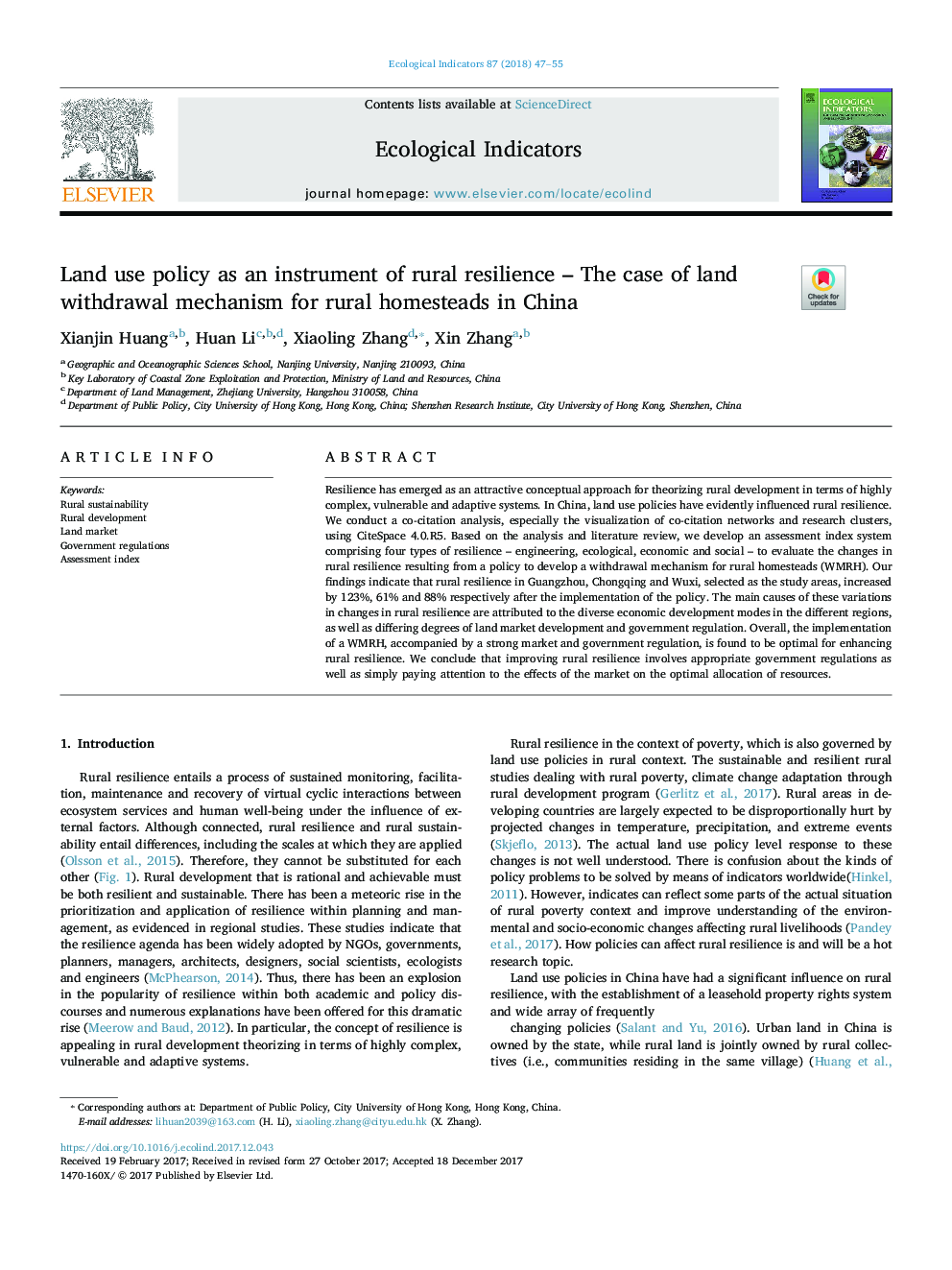| Article ID | Journal | Published Year | Pages | File Type |
|---|---|---|---|---|
| 8845566 | Ecological Indicators | 2018 | 9 Pages |
Abstract
Resilience has emerged as an attractive conceptual approach for theorizing rural development in terms of highly complex, vulnerable and adaptive systems. In China, land use policies have evidently influenced rural resilience. We conduct a co-citation analysis, especially the visualization of co-citation networks and research clusters, using CiteSpace 4.0.R5. Based on the analysis and literature review, we develop an assessment index system comprising four types of resilience - engineering, ecological, economic and social - to evaluate the changes in rural resilience resulting from a policy to develop a withdrawal mechanism for rural homesteads (WMRH). Our findings indicate that rural resilience in Guangzhou, Chongqing and Wuxi, selected as the study areas, increased by 123%, 61% and 88% respectively after the implementation of the policy. The main causes of these variations in changes in rural resilience are attributed to the diverse economic development modes in the different regions, as well as differing degrees of land market development and government regulation. Overall, the implementation of a WMRH, accompanied by a strong market and government regulation, is found to be optimal for enhancing rural resilience. We conclude that improving rural resilience involves appropriate government regulations as well as simply paying attention to the effects of the market on the optimal allocation of resources.
Related Topics
Life Sciences
Agricultural and Biological Sciences
Ecology, Evolution, Behavior and Systematics
Authors
Xianjin Huang, Huan Li, Xiaoling Zhang, Xin Zhang,
